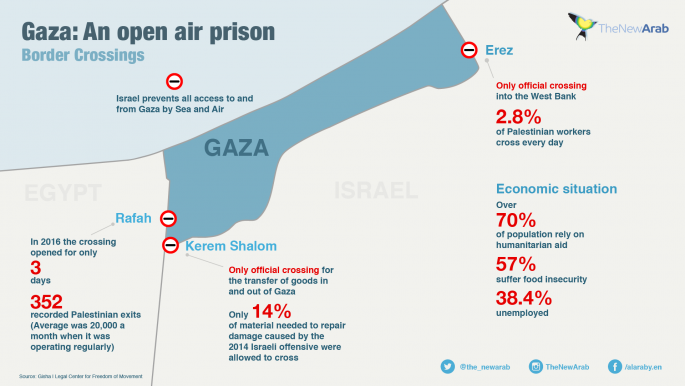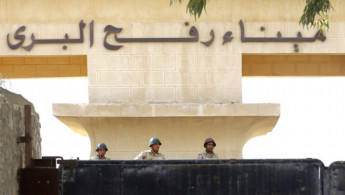Egypt to open Rafah border crossing for two days
Egyptian authorities will open the Rafah border crossing with the Israeli-blockaded Gaza Strip for two days, Egyptian state television reported.
The crossing will open in both directions on Wednesday and Thursday to allow the passage of humanitarian cases and residency holders from Gaza into Egypt.
The decision comes in response to a request by Palestinian President Mahmoud Abbas following a Monday meeting with Egyptian President Abdel Fattah al-Sisi in Cairo.
The Rafah border crossing, which links Egypt with Gaza, is the main entry and exit point for 1.8 million Palestinians who live under Israeli siege to enter and exit the Strip.
It has been mostly closed since October 2014 when a militant attack in North Sinai left over 30 Egyptian security personnel dead.
It was last opened in mid-February for three days in a 2016 first.
The Egyptian military has destroyed the underground tunnels leading in and out of Gaza as one of several counter-terrorism measures adopted by the state.
Egypt sees the tunnels as a pathway for arms and militants, forming a direct threat to the country's security.
Hamas has accused Egypt of adding to the siege of Gaza by destroying the tunnels which have long been used to transport people and much-needed goods in and out of the enclave.
"Blockades, war and poor governance have strangled Gaza's economy and the unemployment rate is now the highest in the world," the World Bank said in a report last year, adding that the enclave's economy was on the "verge of collapse."
The difficult living conditions in the enclave were worsened after destruction caused by a 51-day Israeli attack in a 2014 summer offensive, which killed more than 2,251 Palestinians and 73 Israelis, the majority of whom were soldiers according to the United Nations.
 |
| [Click to enlarge] |





 Follow the Middle East's top stories in English at The New Arab on Google News
Follow the Middle East's top stories in English at The New Arab on Google News


